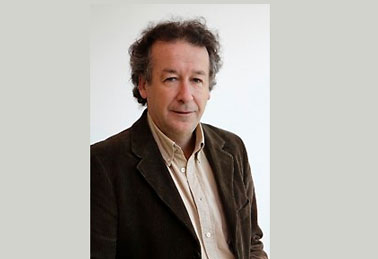- El integrante del Departamento de Educación, académico Juan Silva, fue invitado a formar parte de la comisión de trabajo del Ministerio de Educación destinada a elaborar una propuesta integral de políticas públicas para la Formación Inicial Docente (FID). El aporte específico del académico Silva será en el “uso de Tecnologías de la Información y la Comunicación (TIC) en la docencia”, materia en la que es experto. (En la fotografía, el jefe de la División de Educación Superior, Divesup, del Mineduc, Francisco Martínez Concha, quien convocó a profesionales especialistas para cumplir esta labor).
El académico Juan Silva, integrante del Departamento de Educación de nuestra Universidad, fue convocado por el jefe de la División de Educación Superior, Divesup, del Mineduc, Francisco Martínez Concha, para formar parte de una comisión de trabajo con el propósito de ayudar a elaborar una propuesta integral de políticas públicas para Formación Inicial Docente (FID), en el marco del diseño de la reforma de educación superior.
La metodología de trabajo de la comisión consistirá en reuniones periódicas en fechas que se acuerden en conjunto y se organizará en función de los temas que defina al principio, para lo cual la Divesup presentará una propuesta inicial, según el Mineduc.
Grupo interdisciplinario
El académico es el único miembro de la Universidad de Santiago en la comisión, que incluye expertos del mundo académico, ministerial y de ONG, seleccionados por su experiencia en la parte práctica más que teórica.
Según lo informado, se trata de un grupo interdisciplinario que reúne a expertos en la formación inicial de docentes. “El propósito es generar un marco regulador base que establezca las condiciones mínimas para que una institución de educación superior pueda formar docentes y acceder a recursos del Estado para hacerlo”, expresa Silva.
Según el académico, este marco regulador básico se validará con diferentes actores asociados a la formación de profesores y su inserción en el trabajo escolar.
“Al estar funcionando este marco sería lo primero que en el futuro la CNA (Comisión Nacional de Acreditación) debería considerar para acreditar una carrera de pedagogía. Sin estos elementos no debería acreditar”, indica.
Aportes
Los aportes del académico serían en dos planos: primero, a nivel de las dimensiones e indicadores generales considerados clave en la formación inicial docente, como infraestructura, área académica, prácticas, investigación e innovación, entre otros; y, segundo, en relación al conocimiento de Silva en el uso de Tecnologías de la Información y la Comunicación (TIC) en la docencia.
“Principalmente, y por lo cual fui invitado, es para aportar con mi visión de cómo insertar las TIC en los diferentes procesos asociados a las formación inicial docente, cuáles son las condiciones de infraestructura física y profesional necesarias, cómo se abordan las TIC en las asignaturas de TIC y cómo ellas se usan en general en el currículum de las pedagogías”, explica.
Concluye: “Espero ser un aporte y contribuir a esta política ministerial”.



